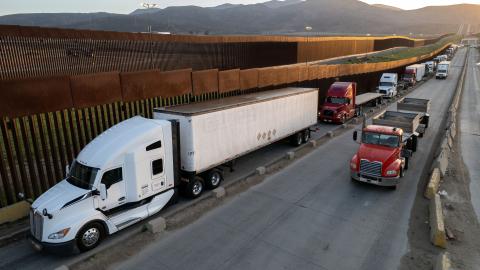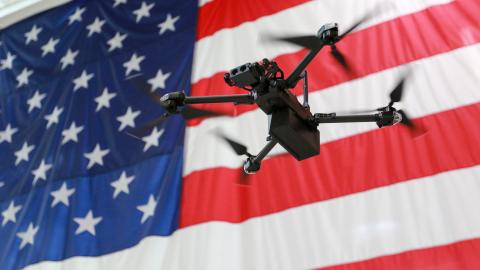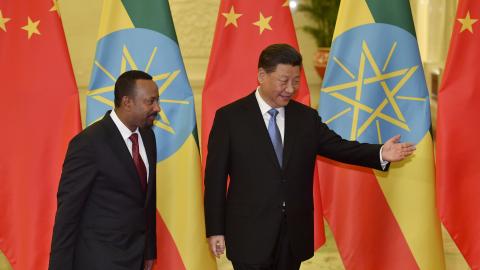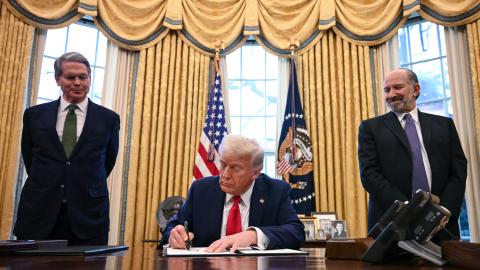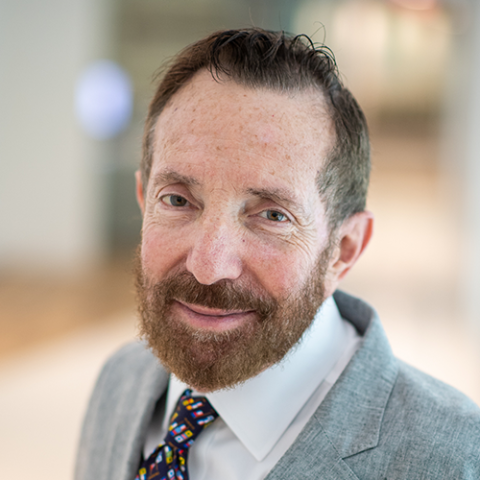A month after the murder of four American officials in Libya on Sept. 11, congressional testimony and leaked government cables have revealed that some U.S. officials immediately recognized that terrorists had planned the attack. So why did the Obama administration's top policy makers—including the president himself—persist in claiming that the catastrophe was a spontaneous outburst of rage against an anti-Islam video posted on YouTube by an American provocateur?
Many critics smell cynical politics. The president, after all, has an electoral interest in denying that terrorism remains a serious problem. Likewise, during the second presidential debate, when he could no longer justify his initial emphasis on the video, Mr. Obama claimed misleadingly that he had called the Benghazi attack a terrorist act a day after it happened.
But there's a bigger problem here than cynicism. It is that the administration's first response—to blame an American video, not Islamist terrorists—reflected strategic misjudgments. First is the refusal to accept that the terrorism threat is part of a larger problem of Islamist extremism. And second is the belief that terrorism is spawned not by religious fanaticism but by grievances about social, economic and other problems for which America bears fault.
When Mr. Obama became president, he was intent on repudiating the previous administration's war on terrorism, which saw al Qaeda as part of a diverse international movement of Islamist extremists hostile to the United States, to liberal democratic principles (in particular the rights of women), and to most governments of predominantly Muslim countries.
Mr. Obama chose to define America's enemy not ideologically but organizationally, as al Qaeda and its affiliates. White House counterterrorism chief John Brennan, in his speeches over the past few years, has insisted that terrorists should never be described as Muslim because their extremism is not consistent with Islam. Mr. Brennan discourses on Islam as if he were an imam. The Obama administration, he said in 2010, does not "describe our enemy as jihadists or Islamists because jihad is holy struggle, a legitimate tenet of Islam meaning to purify oneself or one's community." He failed to mention that jihad also means holy war.
It is clear that not all Muslims embrace extremist Islamist ideology—perhaps only a small minority do. But the extremists claim to speak for the true Islam. Their pretensions are disputable, but it is false and presumptuous for Mr. Brennan, an American and non-Muslim, to assert that the extremists cannot be Islamic or religious leaders.
The problem with ignoring ideology is made clear—unintentionally—in President Obama's National Counter-Terrorism Strategy, released in June 2011. In it he writes: "We are at war with a specific organization—al-Qa'ida." But America also has to work aggressively against Hezbollah, he notes a few pages later—and against a number of terrorist groups in South Asia, he further adds, "even if we achieve the ultimate defeat of al-Qa'ida in the Afghanistan-Pakistan theater."
So our problem is substantially broader than al Qaeda—and even broader than al Qaeda and its affiliates. What all these groups have in common is Islamist ideology—yet Mr. Obama ignores that.
And what, according to the Obama administration, stokes the fires of extremism? It isn't the supremacist exhortations of Islamist ideology. Rather, it is longstanding political and economic "grievances," according to Mr. Brennan, such as "when young people have no hope for a job," "when governments fail to provide for the basic needs of the people," and when the Palestinian-Israeli conflict remains unresolved. President Obama, Mr. Brennan has said, thinks America should be "addressing the political, economic and social forces that can make people fall victim to the cancer of violent extremism." Mr. Brennan has also noted that the president is "concerned with how the United States was viewed in the world and how these attitudes were fueling the flames of hatred and violence."
Thus the way to defeat the terrorists, according to President Obama, isn't to counter extremist Islamist ideology but to focus on how the United States, through its actions and delinquencies—its supposed excessive support for Israel, for example, and failure to provide more economic aid—is to blame for the hatred that spawns terrorism.
White House senior director for the National Security Council Samantha Power wrote some years ago, while a Harvard University lecturer, that America should adopt a foreign-policy "doctrine of mea culpa." This is the frame of mind that President Obama brought to his famous June 2009 Cairo speech in which he suggested that tensions between America and the world's Muslims are largely America's fault. It was in that speech that President Obama asserted: "Islam is not part of the problem in combating violent extremism."
And so we get to the false insistence for day after day that the murderous attack on the U.S. consulate in Benghazi arose from anger about a YouTube video. Because Mr. Obama misdiagnoses terrorism and extremism, it is not surprising that he failed to recognize their consequences; instead, he reflexively looked in the Benghazi wreckage for a cause that originated in this country.
Such thinking infects many streams of Obama administration foreign policy. If the president were clear-eyed about Islamist extremism, he wouldn't have cold-shouldered the antiregime demonstrators in Iran in June 2009. He wouldn't have cut funds for promoting democracy and human rights abroad. He wouldn't have made a diplomatic representative of Salam al-Marayati, who calls for Hezbollah's removal from the U.S. terrorist list and has said that "Israel should be put on the suspect list" for the 9/11 attack. And the president wouldn't have spent more energy denouncing foolish American bigots than condemning organized, anti-American terrorism.


